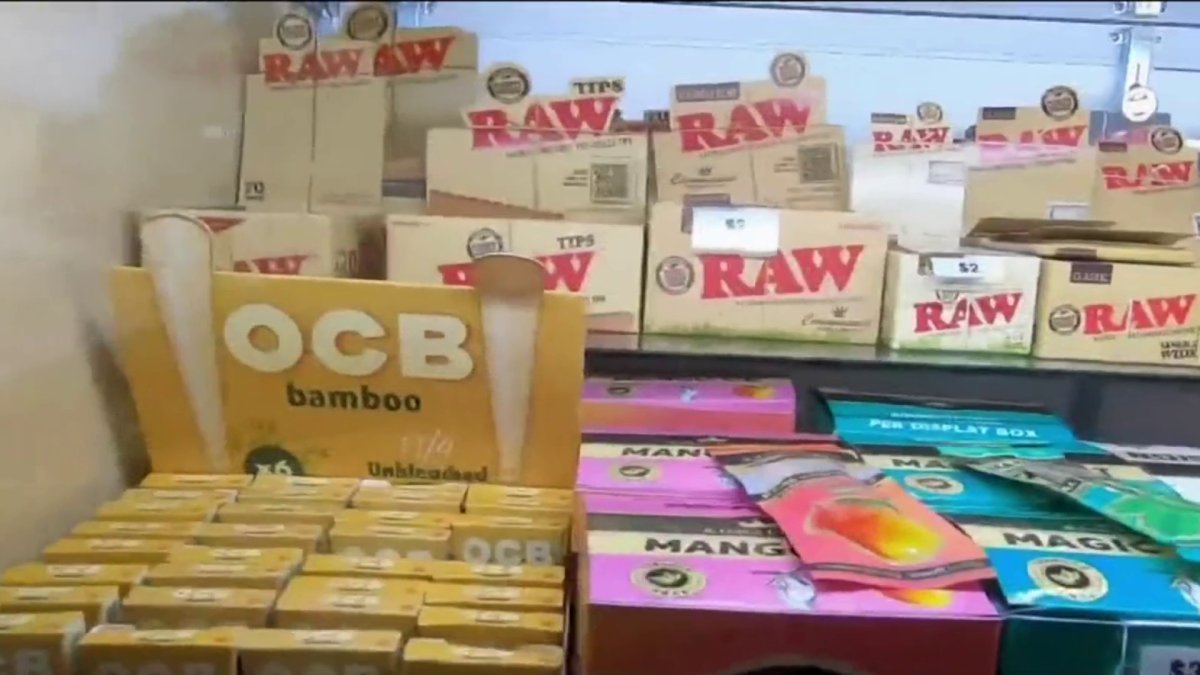
The state approved the sale of recreational cannabis in July. Now businesses are working on plans for future sales.
What does it take to run a recreational marijuana business? That is a question people who work at Connecticut dispensaries are considering with adult use sales slated to begin next year.
That means anyone 21 or older will be able to buy cannabis products from a dispensary without a medical card.
“At the end of the day, cannabis is another industry. It is a heavily regulated industry, it's a fascinating industry, it's a brand new industry,” Benjamin Zachs, chief operating officer of Fine Fettle in Newington, said.
Fine Fettle is one of the first companies in Connecticut on the path to selling cannabis recreationally. It has several locations: in Newington, Willimantic, and one soon to open in Stamford. The dispensary company is also operating in other states, including Massachusetts and Rhode Island.
Get Connecticut local news, weather forecasts and entertainment stories to your inbox. Sign up for NBC Connecticut newsletters.
With welcoming lights, stocked shelves, and an extensive menu, walking into the Newington location is akin to entering a café
“Anything that you need we hope to have it for you. And if we don’t have it, and you want it, we try and get it for you,” Zachs said. “Cookies and brownies. We sell about 900 products within the facility.”
Yet, unlike a café, anyone who enters goes through a screening process.
Local
“All patients and customers come through here to show their valid ID and medical marijuana card, to show that it’s valid and active. Then after we ensure they’re in compliance and the ID is valid, they come into the dispensary area,” Zachs said
The state approved the sale of recreational cannabis in July. In mid-August, Zachs says, Fine Fettle pitched selling recreational cannabis and got the green light.
“In both Willimantic and Newington, we were the first dispensaries to get our special permit for approval to operate as a hybrid dispensary, which means we can sell both medical and recreational cannabis out of the same facility,” he said.
Getting a special use permit from the town planning and zoning commission is just the first step. Next, the Department of Consumer Protection is tasked with giving out licenses, which likely will not take place until spring 2022.
Finally, a newly formed Social Equity Council will decide where those licenses go, ensuring that recreational marijuana businesses help communities that have been criminalized by the war on drugs.
“We are excited to bring jobs, we’re excited to train new operators. We’re excited to see black and brown people, who have been arrested in extraordinary numbers, be a part of this industry from both jobs and ownership,” Zachs said.
There are 54,000 medical marijuana patients in Connecticut, according to government data. Now Zachs is preparing to use Fine Fettle to tap into the state’s 2.4 million population who is 21 and older. He said the Connecticut locations are equipped with the space and the staff to handle those additional recreational sales. Now he is keeping an eye on the supply.
“I hope that there’s enough inventory. I think that’s a big question,” Zachs said. “There are only four producers in Connecticut. We will not sell products to recreational customers if we do not have the products our patients need first.”
Connecticut is the 18th state along with Washington, DC to legalize recreational cannabis use, and Zachs sees keeping up with the demand as key to economic highs.
“Bring real, measurable revenue to Connecticut before the other states that are our neighbors get there before us,” he said.
While there are 18 medical dispensaries statewide, many are not getting the same reception as Fine Fettle, with towns and municipalities banning recreational sales.
Zachs believes those town leaders may have regrets, pointing out it’s not smoke flowing out of the shop, but a lot of cash.
“Structured in the law, 3% of all recreational sales go back as a tax into the town. So the municipality in which these facilities are going to operate should get a pretty nice chunk of change,” he said.
A joint effort, from his stance, is the future.
“To bring this and have it be safe, and have it be taxed, and have it bring jobs, to bring this sort of into the 21st century and to right the wrongs of the past, both from a socioeconomic standpoint, from a political standpoint, we think is incredibly, incredibly important,” Zachs said.
Two laws related to cannabis are changing in Connecticut this week. Starting on Friday, October 1, medical marijuana patients can grow up to six plants at home. The Department of Consumer Protection Commissioner can also add to the list of conditions that qualify for medical use.
In addition to that, a new smoking ban takes effect. It requires workplaces to ban smoking and vaping, and tightens restrictions in other public places. This applies not only to cannabis and hemp, but also to tobacco products.